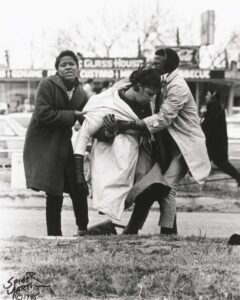Edited by: JURIST Staff
The author, an anonymous Afghan legal scholar, argues that the international community must do more to help refugees fleeing Taliban rule…
Nooria — an Afghan refugee in Turkey — faces unbelievable hardships and the daily fear of deportation. Undaunted, she refuses to return to the Taliban’s gender apartheid state in Afghanistan.
Before the Taliban’s resurgence, Nooria had a comfortable position with the US Government in Kabul. But following threats from the regime, the 40-year-old fled, and has since found herself living in a damp basement in a rundown neighborhood in central Turkey.
The escalating conflict in Afghanistan, particularly the Taliban takeover in August 2021, led to political uncertainty and economic collapse, as well as to the Taliban’s draconian restrictions on women and girls, prompting many Afghans to flee the country. Neighboring countries like Pakistan, Iran, and Turkey have become destinations or transit points for Afghans seeking a new life.
Turkey, the world’s leading refugee-hosting country, provides shelter to approximately 3.6 million forcibly displaced people, mainly from Syria and Afghanistan. It also plays a role as a buffer to the European Union’s migration management efforts, particularly following a 2016 agreement between the EU and Turkey to prevent irregular migration to the bloc.
Turkey’s unique geographic position, straddling Asia and Europe, makes it a pivotal crossroads for migrants from Afghanistan hoping to go west. As a result, the Turkish government has been trying to manage the influx by completing a border wall with Iran and setting up police checkpoints to control migration.
Upon arrival in Turkey, Nooria and her family’s documents were invalidated by the Turkish government, leaving them without access to social services — including such pivotal services as education, work, and healthcare. They were held in refugee camps, separated from each other,
Like many other Afghan refugees, Nooria and her family did not feel particularly welcomed by the Turkish people. Discrimination and racism against Afghan refugees make it difficult for them to find proper and safe shelter. Finding employment and earning an income is also nearly impossible. “We work illegally away from the eyes of the Turkish local government. We do the most and hardest work, but we receive less money than others,” Nooria said.
One of Nooria’s reasons for fleeing extremism and Islamism in Afghanistan was to provide her daughter with a better education in a place where she could go to school and study. However, because they are not legal residents in Turkey, her daughter and son cannot attend school. Instead, local people in the neighborhood pressure them to attend madrasas and learn Islamic studies against their will. “They are forcing our children to learn what they want in the madrasa against our will,” Nooria lamented.
Living illegally without valid documents also restricts Nooria and her family’s access to healthcare services and insurance. “My son has a hearing problem and he can’t hear. But we can’t take him to the hospital. And we cannot do anything to treat him,” she said.
Despite these challenges, the Turkish government has warned Nooria and her family that they need to hire a lawyer to defend their case in the immigration court to prevent deportation back to Afghanistan.
“Since we came to Turkey, our lives haven’t improved for the better; things have gotten worse,” Nooria said. “If we were in Afghanistan, we would be killed once, but here we die every day because of fears of deportation back to the Taliban.”
There is no way for Nooria to return to Afghanistan. She is ready to face all obstacles and hardships in Turkey but refuses to live under a regime that restricts her and her daughter from studying, working, and living freely like every other human being.
As the poet Warsan Shire said: “No one leaves home unless home is the mouth of a shark.”
Afghans also do not want to leave their homeland, families, and loved ones; most only do so when forced, for self-preservation. Afghan refugees flee death threats, hunger, extremism, and fundamentalism to find a better life. When they find themselves in even more dire straits than those they fled, something has failed. The international community must afford Afghan refugees the basic rights enshrined in international law; it is their obligation.
The author is an Afghan legal scholar whose identity cannot be revealed due to security threats.
Opinions expressed in JURIST Commentary are the sole responsibility of the author and do not necessarily reflect the views of JURIST’s editors, staff, donors or the University of Pittsburgh.




